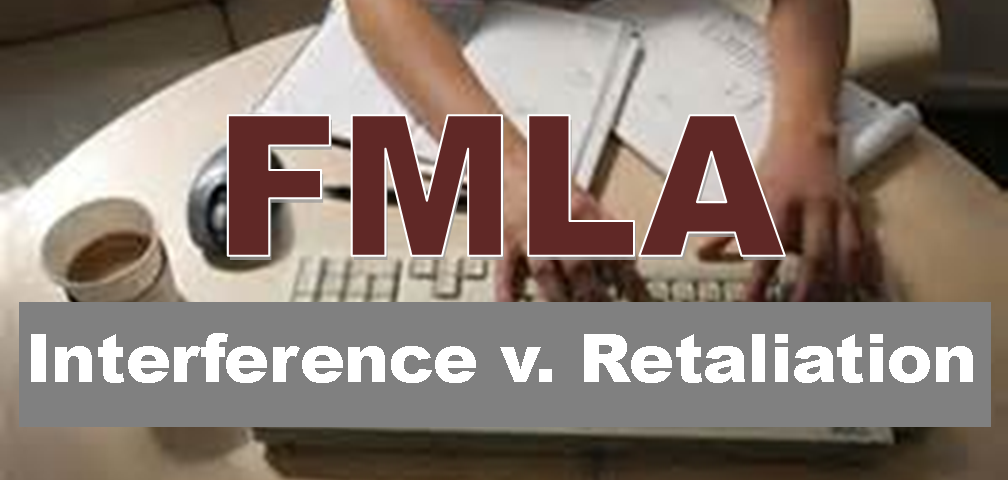Could Drinking a Beer Constitute a Legitimate Use of FMLA Leave?

the situation
You have an employee who has requested intermittent FMLA leave because of some mental health conditions, including depression and anxiety. One morning, the employee tells his supervisor that he needs to use some of this leave because he is experiencing severe stress and anxiety. Another employee reports to you that as the employee was clocking out, he ran into a coworker who was also leaving the jobsite and they made plans to have lunch. You send someone to the restaurant to confirm that the employee is there and he observes the employee drinking a beer. You end up firing the employee. Can he bring a claim of FMLA retaliation against you?
the ruling
At least one federal court has allowed a claim involving this set of facts to go forward, denying the employer’s motion to dismiss. Brady v. Bath Iron Works Corp., Case No. 2:16-cv-4-NT (D. Ct. Me. May 25, 2016). David Brady was a carpenter who worked for Bath Iron Works for over 25 years. Brady began suffering from chronic mental health conditions, including depression and anxiety. Toward the end of 2014, he sought medical treatment for these conditions and ended up asking Bath Iron Works for intermittent leave under the FMLA and Maine’s counterpart law. Bath Iron Works approved the intermittent leave.
Brady made a second request under the FMLA for intermittent leave in 2015. A few days later, after reporting to work one morning, Brady began experiencing “debilitating and incapacitating exacerbation of his stress and anxiety” and went to check on the status of his FMLA request and confirmed that it had been approved. He decided he needed to take leave and told his supervisors that he would be out the rest of the day. Before leaving the worksite, he loaded his car with scrap wood (which Bath Iron Works makes available to its employees) and then he headed to the “clock out” house. He saw a coworker there who was also checking out and they made plans to go to lunch.
Members of Bath Iron Works’ labor relations department heard about Brady’s lunch plans and sent some employees to go check and see if, indeed, Brady had gone to lunch after expressing a need to use his intermittent leave. These employees saw Brady at the restaurant and also saw him drinking a beer (Brady stated in his complaint that he decided not to eat because of his stress and anxiety). Later that day, Bath Iron Works’ industrial physician faxed a letter to Brady’s doctor seeking clarification of her intent with respect to Brady’s intermittent leave and accusing Brady of utilizing his FMLA leave to spend time at the local bar. The next day, when Brady showed up for work, he was not allowed on the premises. A few days later, he met with the management team and was suspended pending investigation for possible FMLA fraud. Brady was subsequently terminated.
Brady filed a lawsuit against Bath Iron Works, claiming that he was terminated in retaliation for taking FMLA leave. Bath Iron Works moved to dismiss the claim, arguing that he had not and could not allege that he had engaged in protected conduct or that there was any causal connection between his alleged protected conduct and his termination.
Bath Iron Works argued that the FMLA does not protect employees who wish to use FMLA leave to load free scrap wood and go to a local bar. But the district court disagreed, at least for the purposes of a motion to dismiss, explaining that Brady had alleged that he received approval for FMLA leave for depression and anxiety and that he used this leave to load his car and go socialize with a coworker. The district court found that “[t]his is not a situation where an employee has been caught ‘red-handed’ engaging in an activity clearly inconsistent with the intended purpose of the leave.” Id. at 8. Instead, this was a factual question which could not be considered by the court on the employer’s motion to dismiss. Notably, the court refused Bath Iron Works’ request that it take judicial notice of the fact that alcohol is a depressant.
The court also found that Brady had sufficiently shown a causal connection between the FMLA leave and his termination. Bath Iron Works’ argument was that he was terminated for misusing FMLA leave as opposed to for using FMLA leave. But the district court stated that just because this was Bath Iron Works’ stated reason did not mean that Brady was not entitled to conduct discovery to determine whether misuse of the leave was the actual reason for his termination. Some of the fact that had been alleged by Brady that supported a causal connection were that Bath Iron Works conducted surveillance on him during his use of leave, that he was barred from the job sit the first morning after he took leave, that his work performance was otherwise satisfactory, and that he was suspended and terminated without any discussion between the labor relations team or the industrial physician and his doctor about whether his use of leave was consistent with treating his medical condition.
the point
At the end of the day, Brady may have trouble succeeding on this claim in light of the facts here. However, his employer was not able to get this claim dismissed on a motion. One potential lesson relates to the significance of communication with an employee’s treating physician. Had Bath Iron Works been able to point to confirmation from Brady’s doctor that his use of leave in this instance was not related to his medical condition, it may have fared better on its effort to get the case dismissed from the outset.

